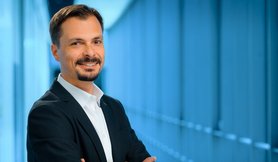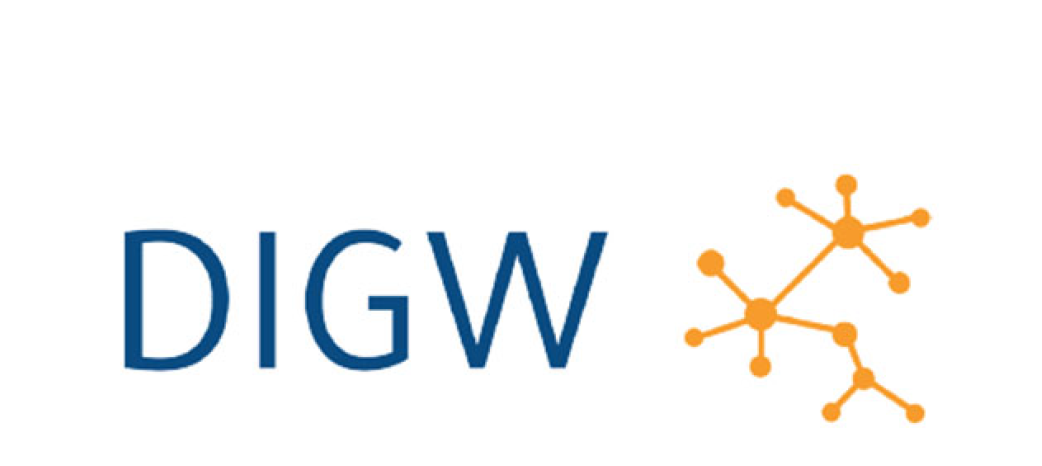Dresden Institute for Social Value Creation
The Dresden Institute for Social Value Creation (DIGW) is an institute of the Dresden University of Applied Sciences (HTW). It has an internal and external impact. It raises awareness and qualifies students and members of the university across faculties within the HTW for the topics of social value creation. For non-profit organisations, administrations and social entrepreneurs, DIGW offers a competent contact for training, research and transfer projects. The term social value creation refers to all measures taken not for profit motives, but to succeed and increase the common good. A regional and supra-regional exchange of organisations from the third sector, the profit sector as well as the state is supported and further developed by DIGW.
Offer & Benefits
DIGW offers services in the areas of teaching, research and transfer. In addition, it supports the implementation of the Third Mission. Students and other members of the university as well as non-profit organisations, administrations and other state institutions and social entrepreneurship in Dresden and beyond benefit from this.
Teaching
The subjects Administrative Management, Management of Nonprofit Organisations and Social Entrepreneurship are already represented in the faculties of Economics and Computer Science as well as in the Gründungsschmiede. A lecture series is offered across all faculties. Extracurricular and curricular offerings ensure cross-faculty competence building at HTW Dresden.
The benefit of expanding teaching in subject areas of societal value creation is primarily for students who are looking for a stronger sense of purpose in their current and future activities. At the same time, all three sectors (state, market and non-profit) benefit from a well-trained workforce.
Research
DIGW conducts implementation and evaluation research on programmes in the public and nonprofit sectors.
- Students are supported in their research activities by DIGW through thesis supervision.
- Private researchers are also offered a think tank for social innovations, provided their ideas serve the common good.
- The institute awards an annual prize for sustainable innovation in NPOs or public administration in Saxony (if applicable, specifically for projects that have been worked on with the participation of students from HTW Dresden).
The benefit of the research activities of DIGW, the students of HTW Dresden as well as associated private researchers is the further development of activities of social value creation. Intersections of the sectors are elicited and further developed, taking into account the special, partly diametrically opposed basic mechanisms.
Transfer
In general, knowledge transfer is ensured by the Institute as a visible player in the regional ecosystem of non-profit, public management and social entrepreneurs, as well as through networking with HAWtech universities and other higher education institutions.
The transfer of knowledge is characterised by an interdisciplinary approach that links social science, business management and technical areas of competence. This interdisciplinarity also reflects the diverse environmental relationships in which public authorities and "third sector" organisations operate.
The transfer is promoted by the respective thematic focal points, i.e. by
- the incorporation of civil society issues into science and scholarship
- the promotion of the ability to act as a community and to be able to react together to future challenges
- turning to problem-oriented and interdisciplinary approaches to solutions on the basis of networked scientific and social knowledge at local, regional, national and international level.
DIGW also ensures the transfer of graduates to organisations in the three sectors. This is done through cooperative application-oriented research, regular student projects with regional and supra-regional administrative bodies or NPOs, and long-term cooperation with Saxon authorities or NPOs.
Transfer is also achieved through an annual conference that provides networking opportunities for representatives of the sectors in Dresden and Saxony.
Third Mission
DIGW contributes to the implementation of the tasks of the Third Mission as stated in the Saxon Higher Education Development Plan (point 4.4). The institute strengthens the regional effectiveness at the Dresden location. Economic, non-economic and socially related topics are specifically addressed to close value chains. The consideration of the state and non-profit sectors strengthens democracy and its civil society.
Values & Mission Statement
The Institute stands for the values of a European Higher Education Area (EHEA) in which democratic participation and the shaping of a free society are to be achieved. In this context, the Conference of European Ministers of Education set the goal of achieving the Sustainable Development Goals (SDGs) by 2030 in the Rome 2020 Communiqué. Research, teaching and transfer of higher education institutions play a prominent role in this context in order to strengthen sustainability, innovative strength and international cooperation.
The Institute's work is oriented towards these guiding principles. It contributes to good governance and (civil) social engagement. It is important to emphasise that the Institute sees itself as a neutral actor, but at the same time ensures a context-sensitive analysis and support of projects.
The Institute defines the generation of sustainable impacts as a criterion for success for its activities. Through cooperation with NPOs and administrative authorities in Germany, Poland and the Czech Republic, these are also directed towards a transnational perspective in Saxony's neighbourhood region. The Institute thus counteracts the tendencies towards populism, nationalism and isolationism that can be observed in some states in Europe and other regions of the world.
Contact



